Quran Journaling Contest (with FREE Printable)
AYEINA hosted a Quran Journaling Contest with the purpose of connecting kids (and even adults) back to the Quran. Here are some of the results:
View this post on Instagram
Quran journaling can be a powerful way to deepen our understanding and connection with the Quran.
1) Day 1
Choose a Meaningful Journal: Find a journal that resonates with you, whether it’s a beautiful notebook or a digital app.

2) Day 2
Set an Intention: Before you start, set a clear intention for your journaling. Decide what you hope to achieve through this practice.
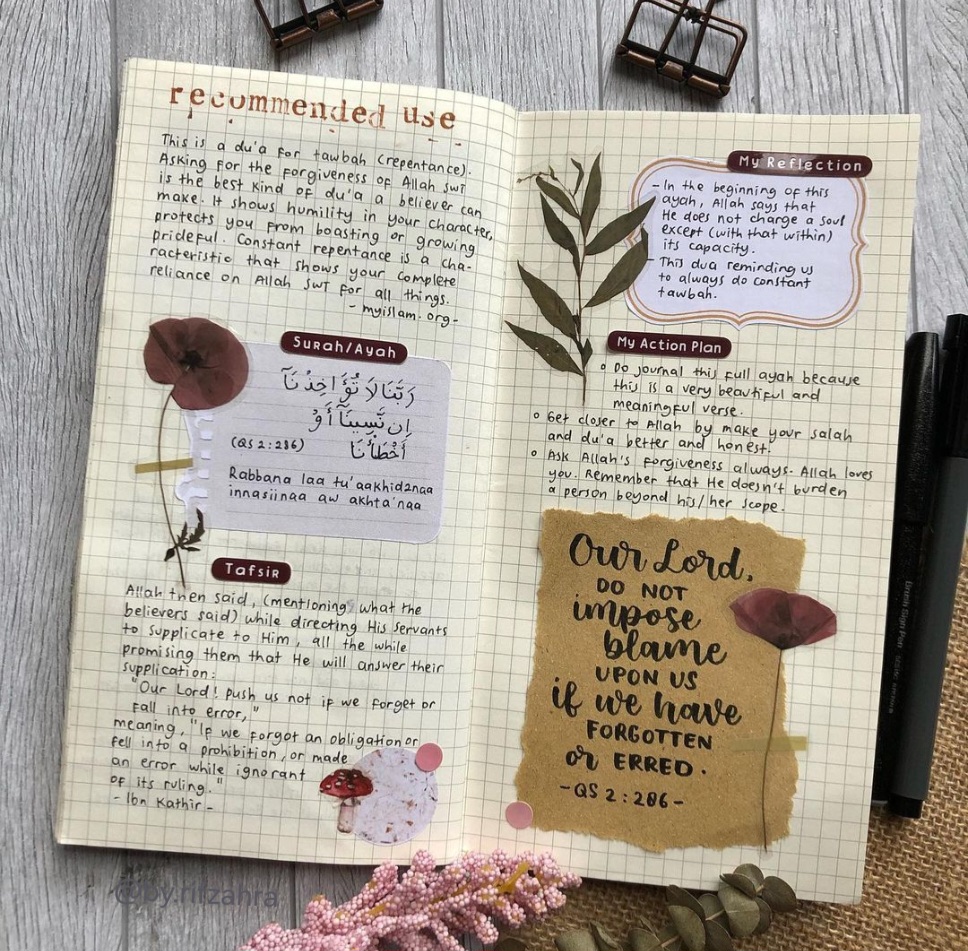
3) Day 3
Begin with Bismillah: Start each journaling session with “Bismillah” to invite blessings and focus your mind.
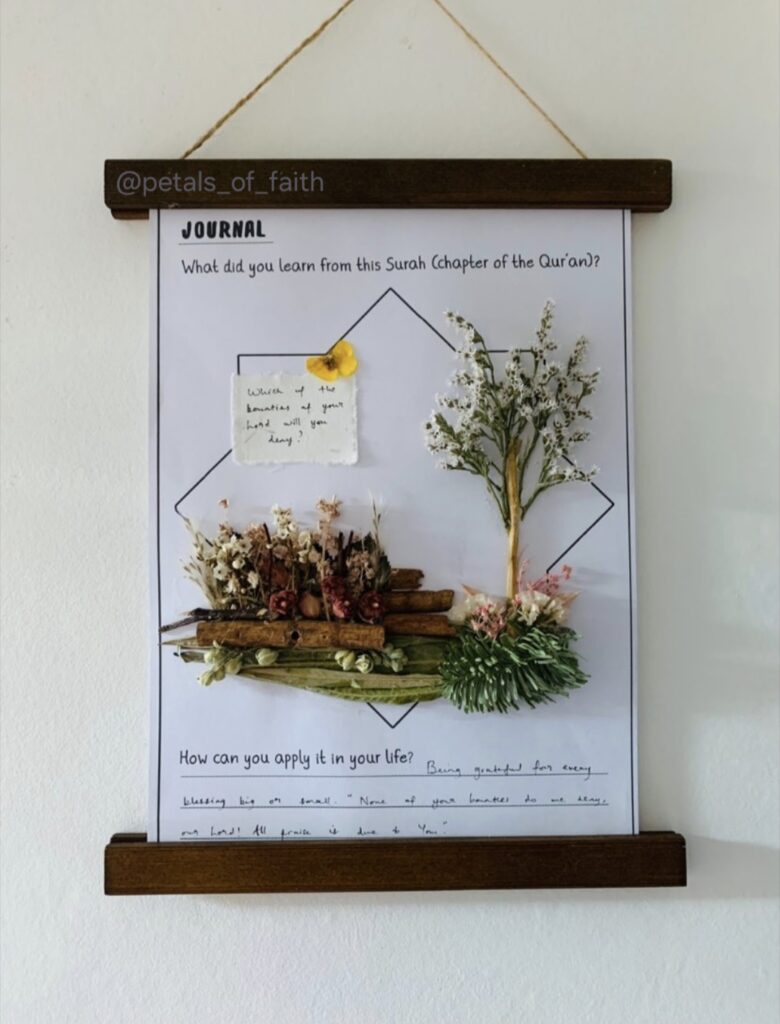
4) Day 4
Select Verses Thoughtfully: Choose specific Surahs or Ayahs that resonate with you or that you want to explore more deeply.

5) Day 5
Reflect on Personal Relevance: Think about how the verse applies to your life and personal experiences.
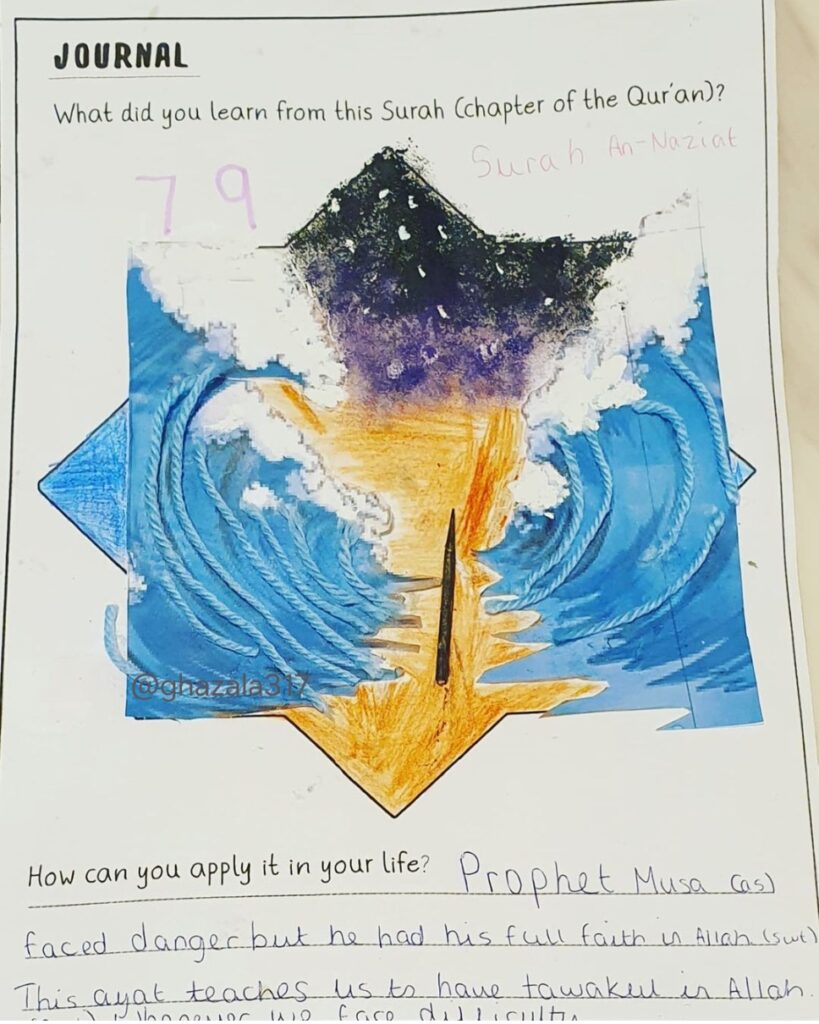
6) Day 6
Compare Translations: Look at different translations of the same verse to gain a broader perspective on its meaning.
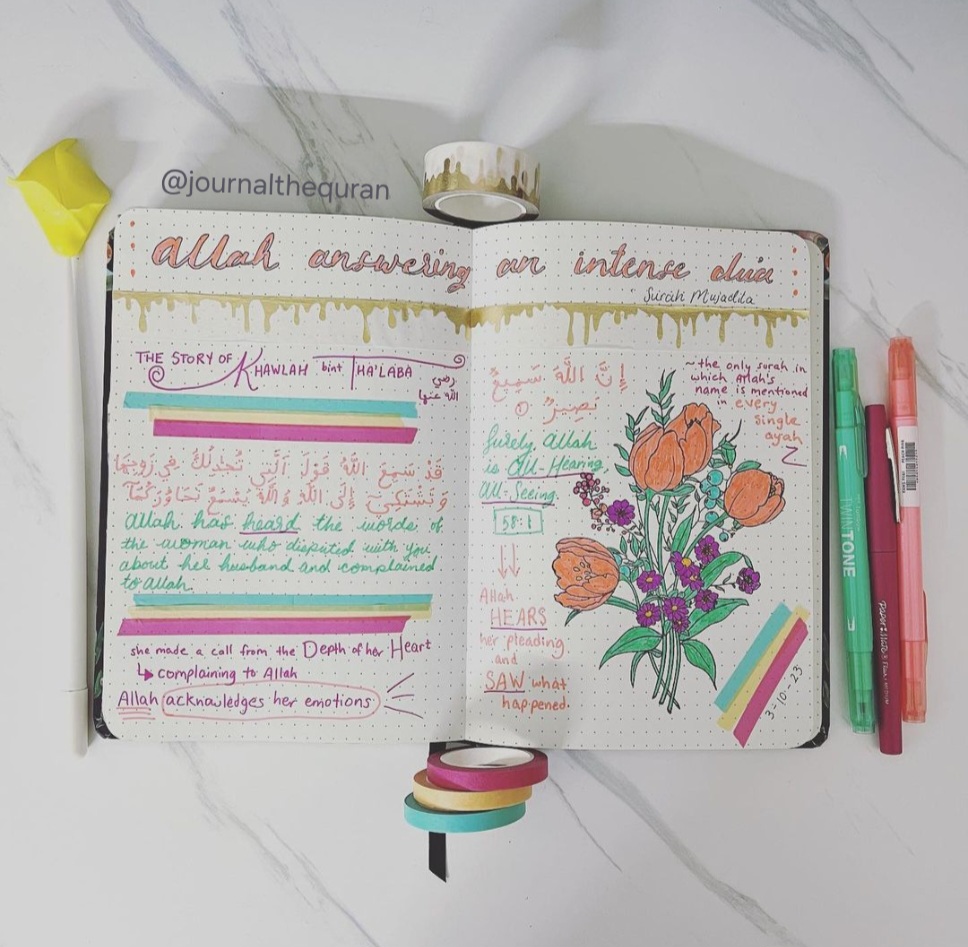
7) Day 7
Incorporate Tafsir Insights: Include notes from Tafsir (Quranic commentary) to deepen your understanding of the verses.
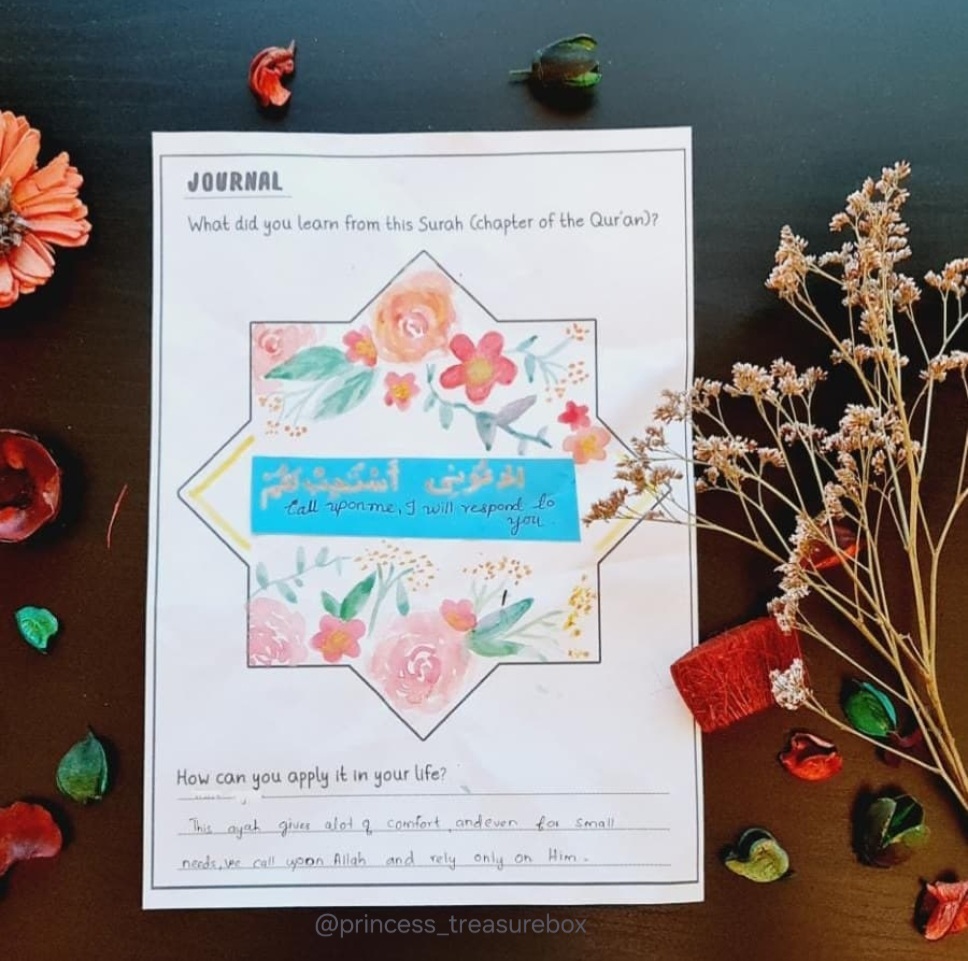
8) Day 8
Document Your Thoughts: Write down your personal reflections, questions, and insights about the verses.

9) Day 9
Make Connections: Relate the verse to other parts of the Quran or Hadiths to see how they interconnect.
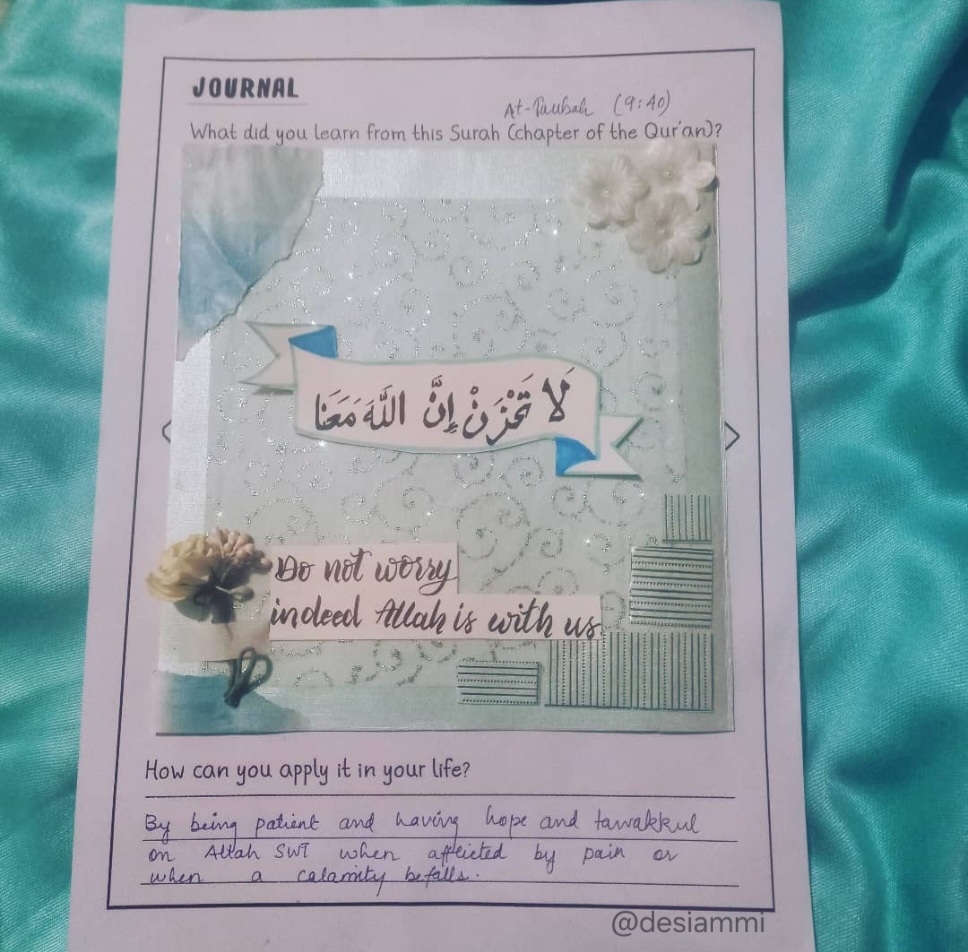
10) Day 10
Track Spiritual Growth: Record changes in your understanding and personal development over time. Make Quran journaling a regular practice, even if it’s just a few minutes a day. Consistency helps in building a deeper connection.

11) Day 11
Use Creative Elements: Add drawings, doodles, or color-coding to make your journal visually engaging. Some people like to include drawings or artwork related to their reflections (as long as it does not cross the boundaries of respect and honour of the Quran).
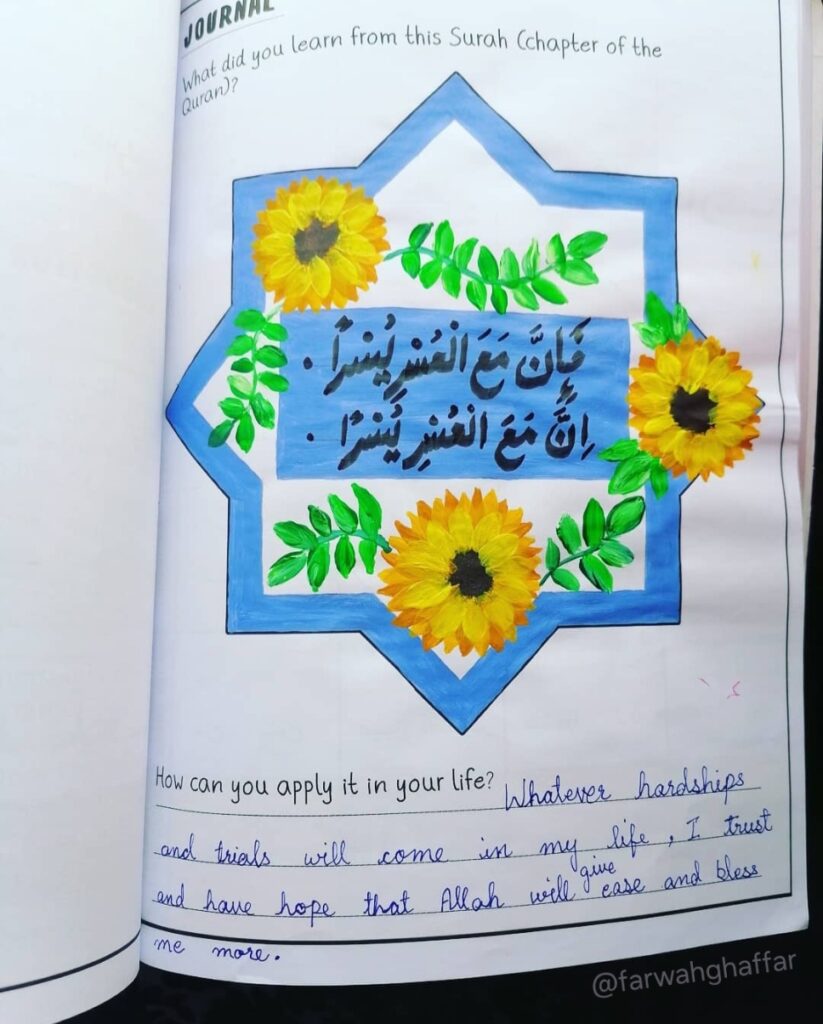
12) Day 12
Establish a Routine: Set aside a regular time for journaling to build consistency and discipline.
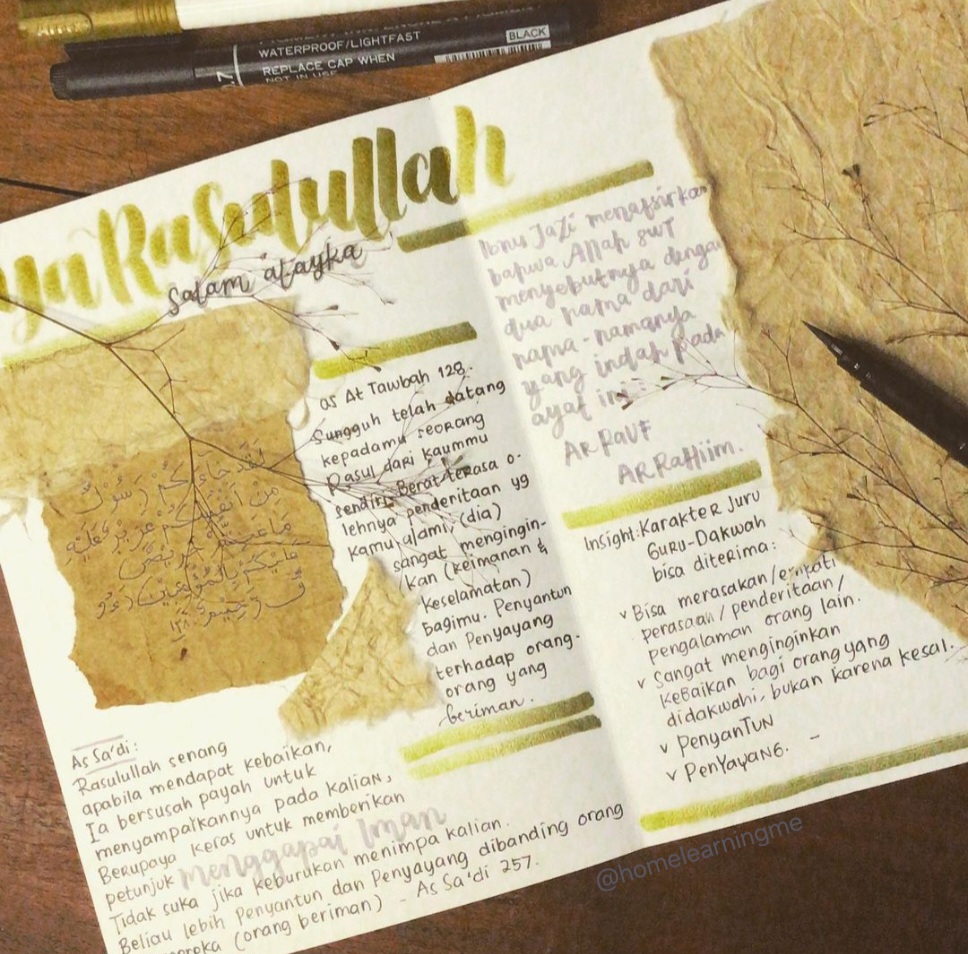
13) Day 13
Incorporate Du’a: Write personal supplications or prayers related to the verses you’re reflecting on.
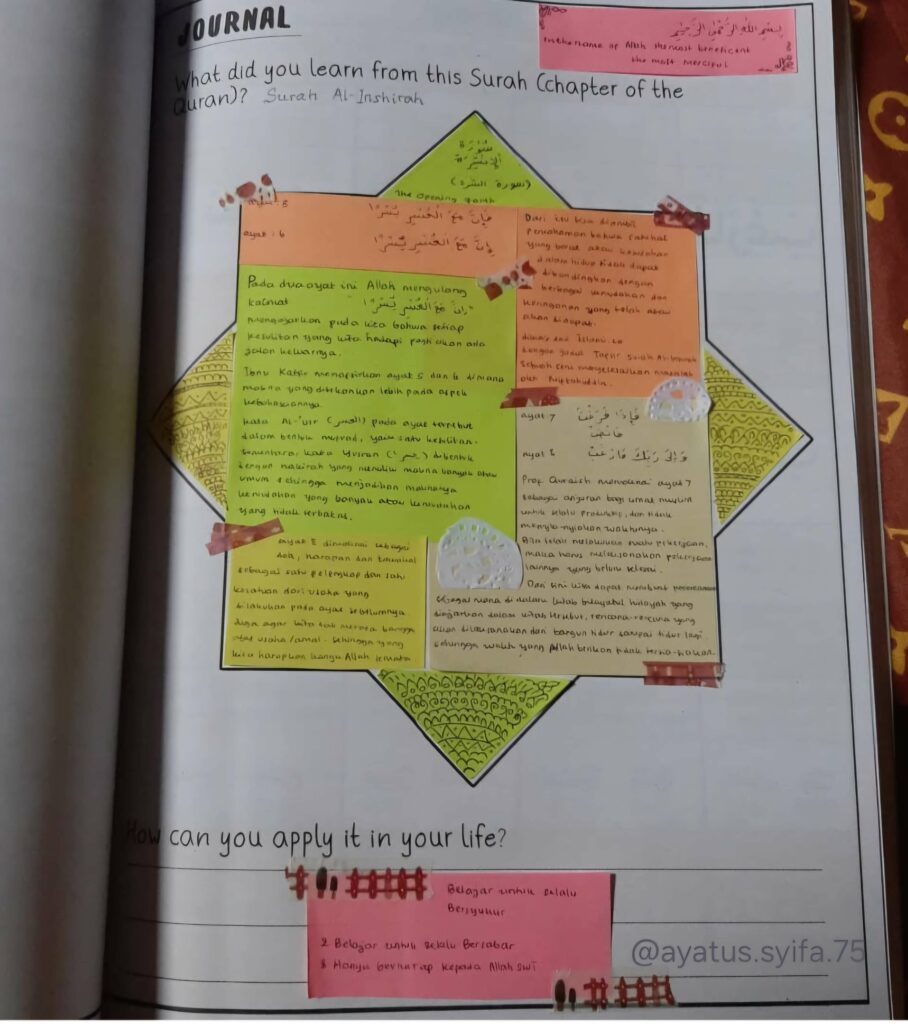
14) Day 14
Review Regularly: Go back and read previous entries to see how your understanding and reflections have evolved.

15) Day 15
Share and Discuss: Share your journal entries with others or discuss them in study groups for different perspectives.
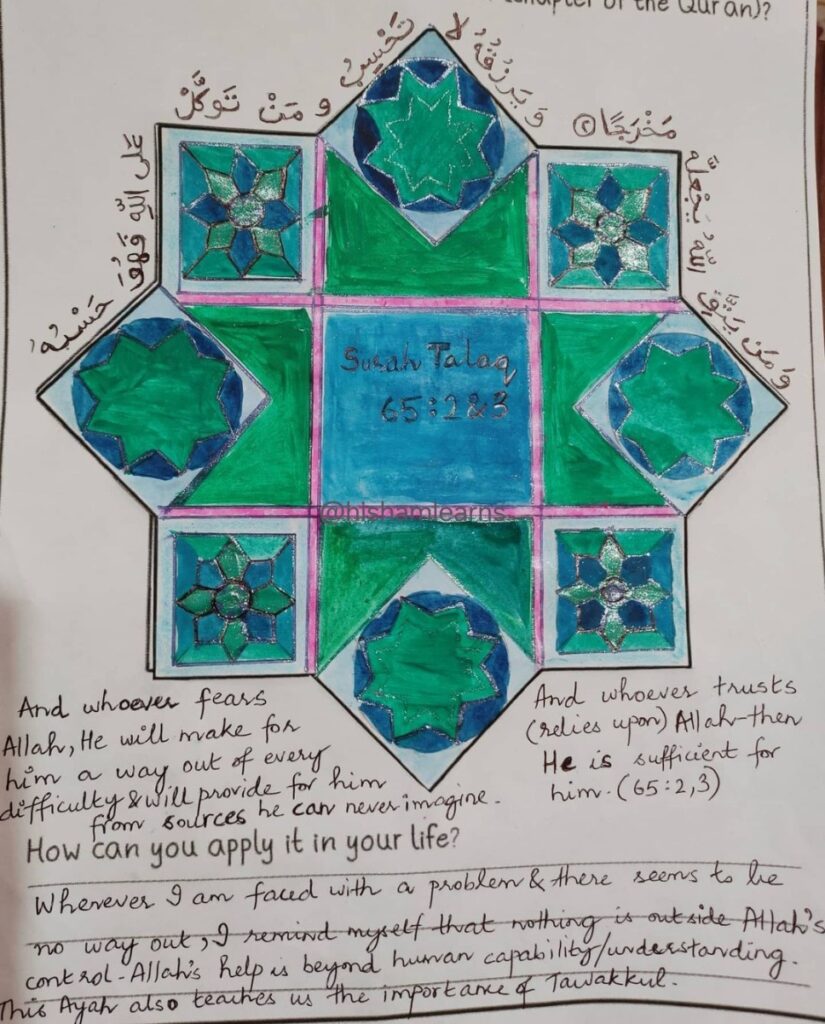
16) Day 16
Ask Questions: Write down questions that arise during your reading and seek answers through study or discussion.
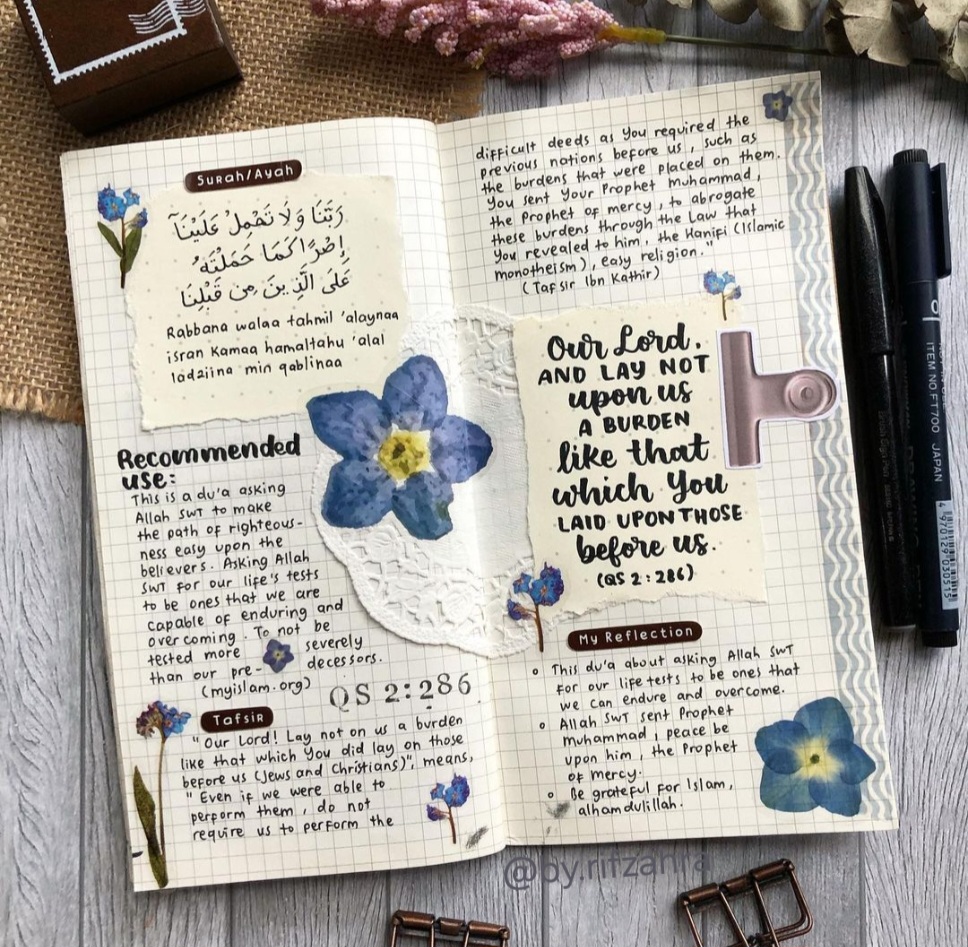
17) Day 17
Set Goals: Define specific goals for your journaling, such as memorizing a certain number of verses or understanding a particular theme.

18) Day 18
Use Prompts: Use journaling prompts to guide your reflections, such as “How does this verse challenge my current beliefs?” or “What action does this verse inspire me to take?” Or like it’s mentioned in JUZ JOURNALS, What did you learn from this Surah (or a verse) and How can you apply it (this Surah or aayah) in your life?
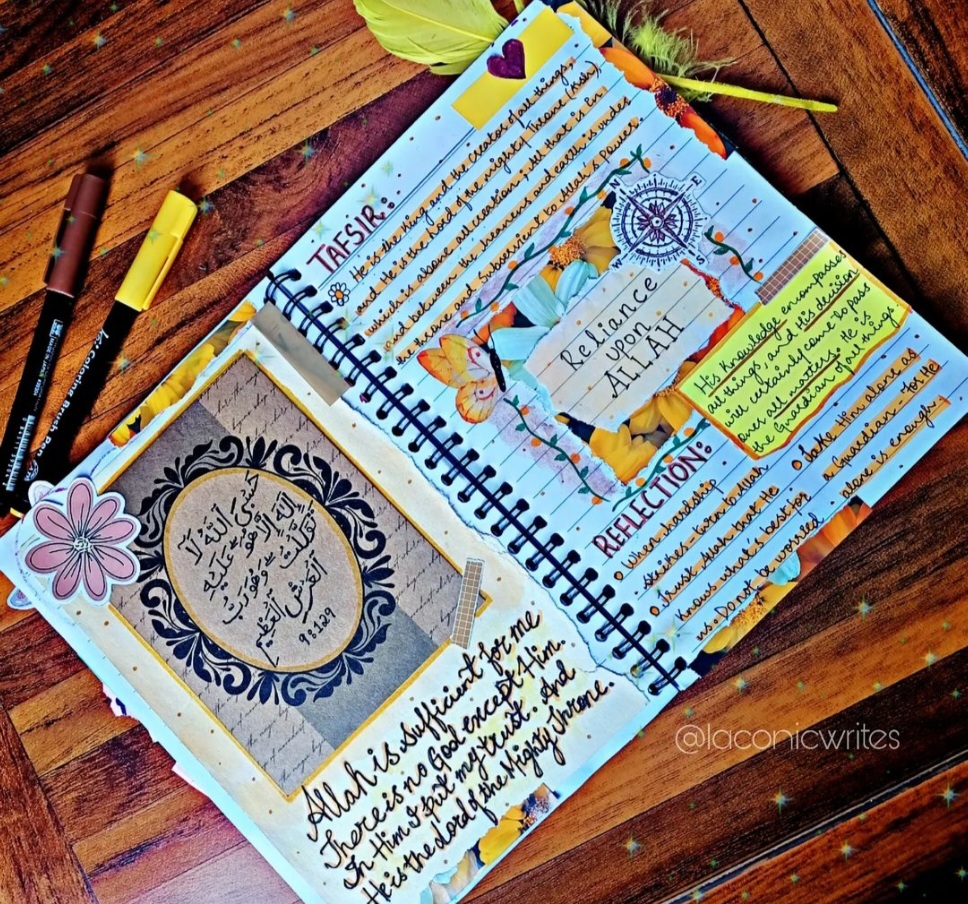
19) Day 19
Incorporate Historical Context: Note the historical and cultural context of the verses to enhance your understanding.
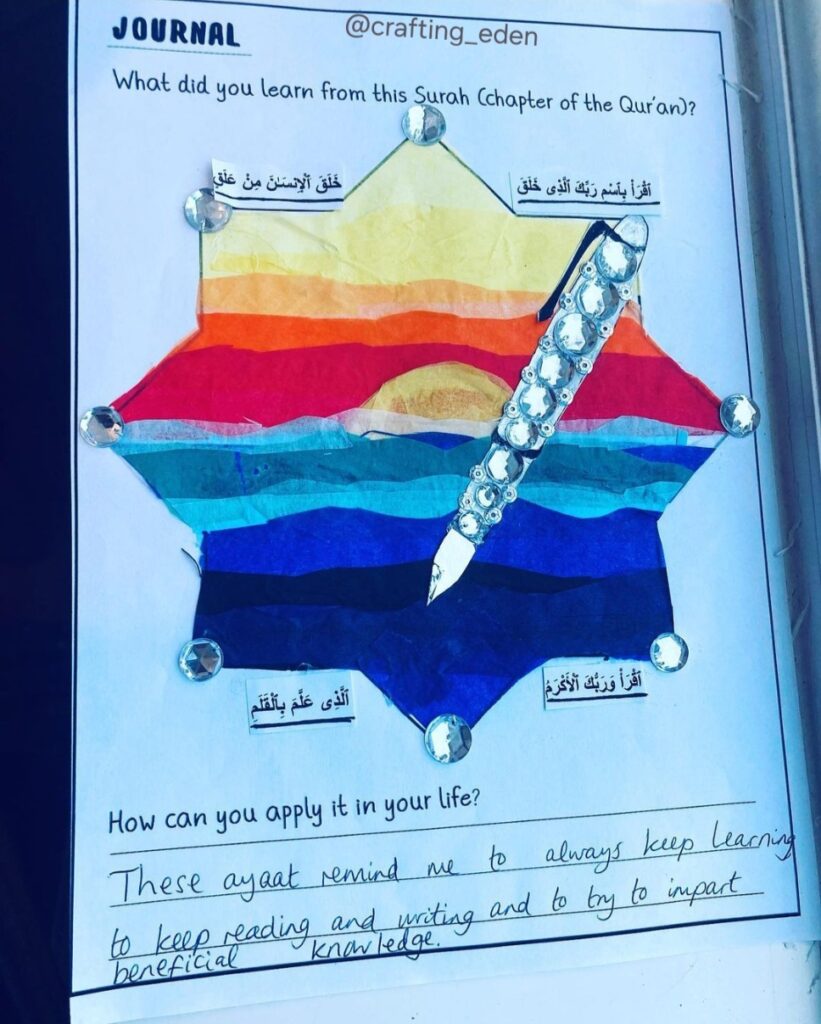
20) Day 20
Write About Changes: Document any changes in behavior, attitude, or perspective inspired by your reflections.
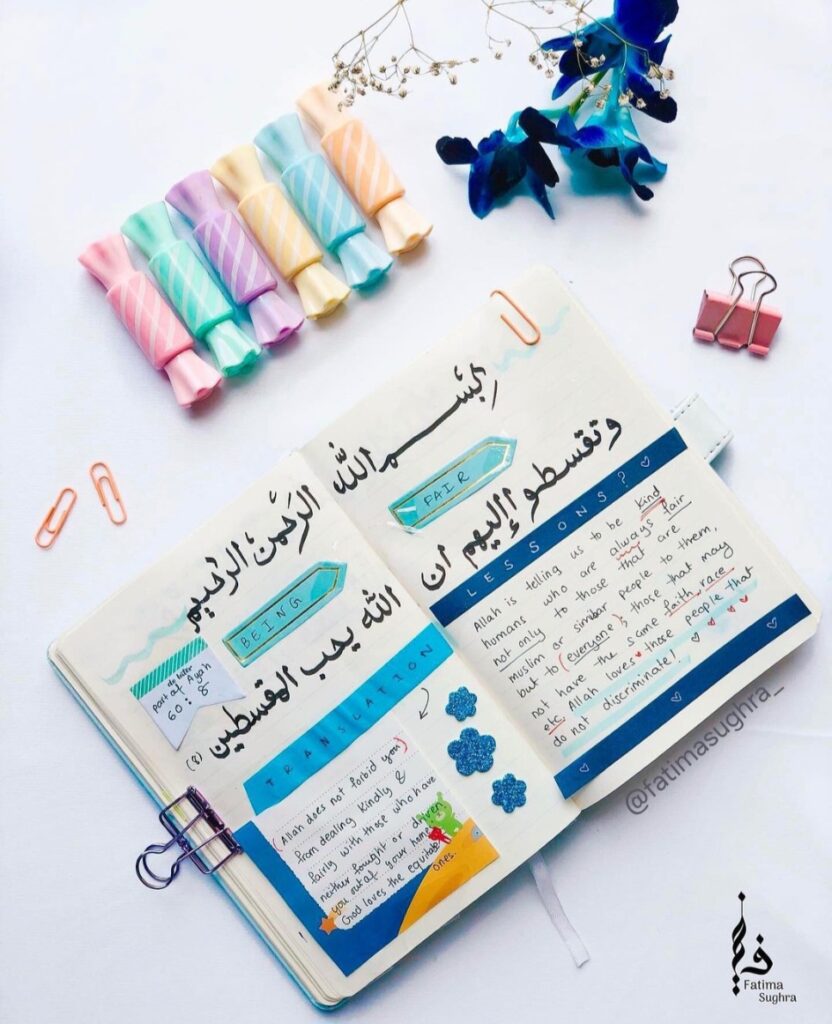
21) Day 21
Practice Gratitude: Include entries that express gratitude for insights or blessings received through your journaling.
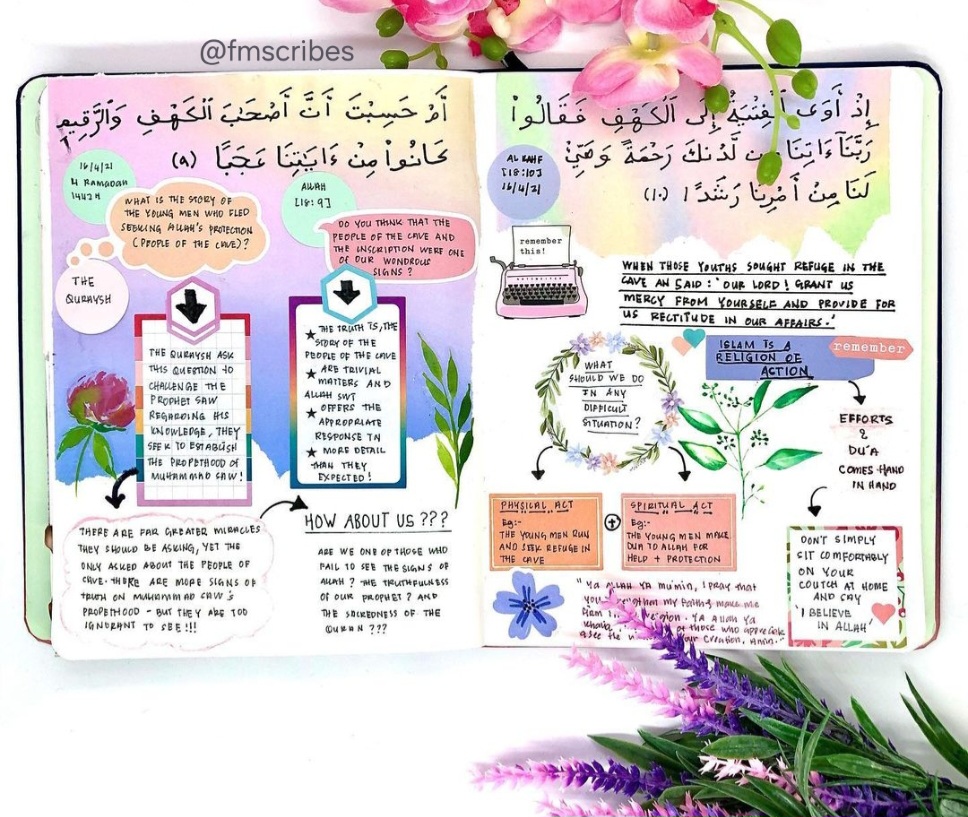
22) Day 22
Highlight Key Themes: Identify and track recurring themes or messages in your journaling to see patterns and insights.
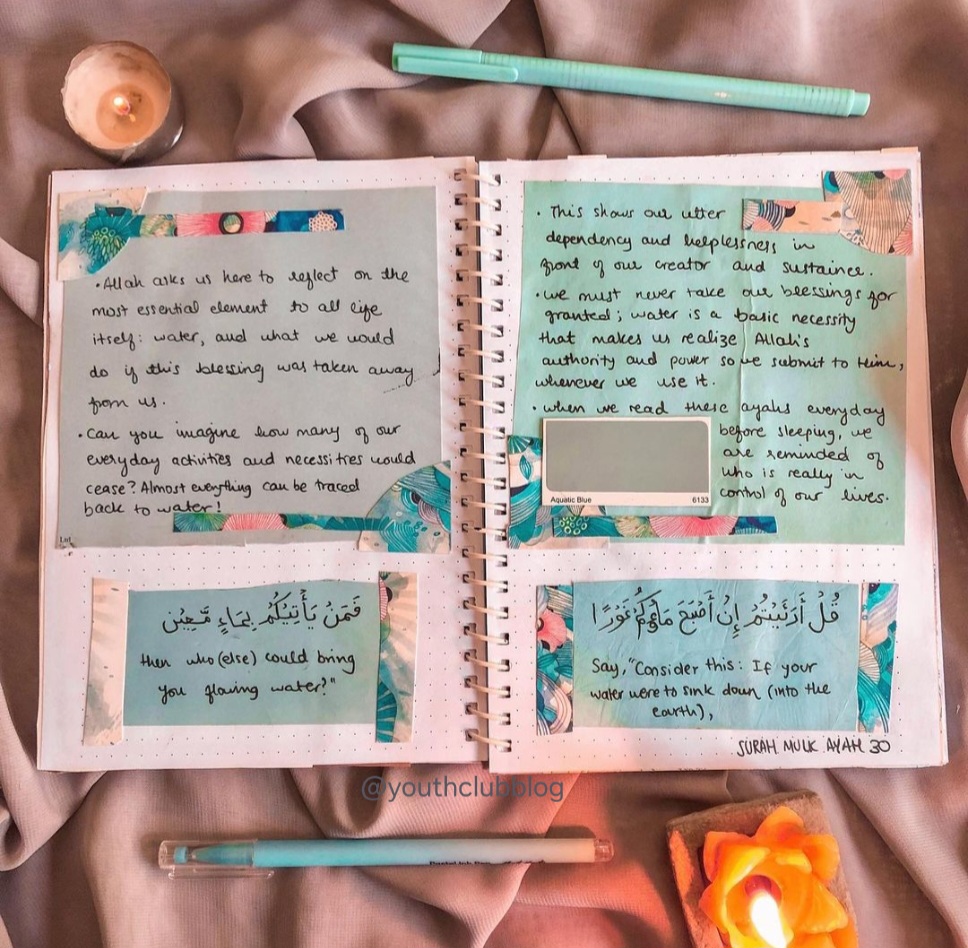
23) Day 23
Use a Variety of Methods: Experiment with different journaling techniques, such as mind mapping, free writing, or bullet points.

24) Day 24
Reflect on Personal Challenges: Use your journal to address personal challenges or struggles and see how Quranic teachings provide guidance.

25) Day 25
Include Inspirational Quotes: Add quotes from Islamic scholars or speakers or even ahadith that compliment your reflections on the verses.

26) Day 26
Write Down Personal Stories: Include personal anecdotes or experiences that relate to the verses you study. Remember, you are not writing tafseer, but making it relatable for you through the power of reflection.
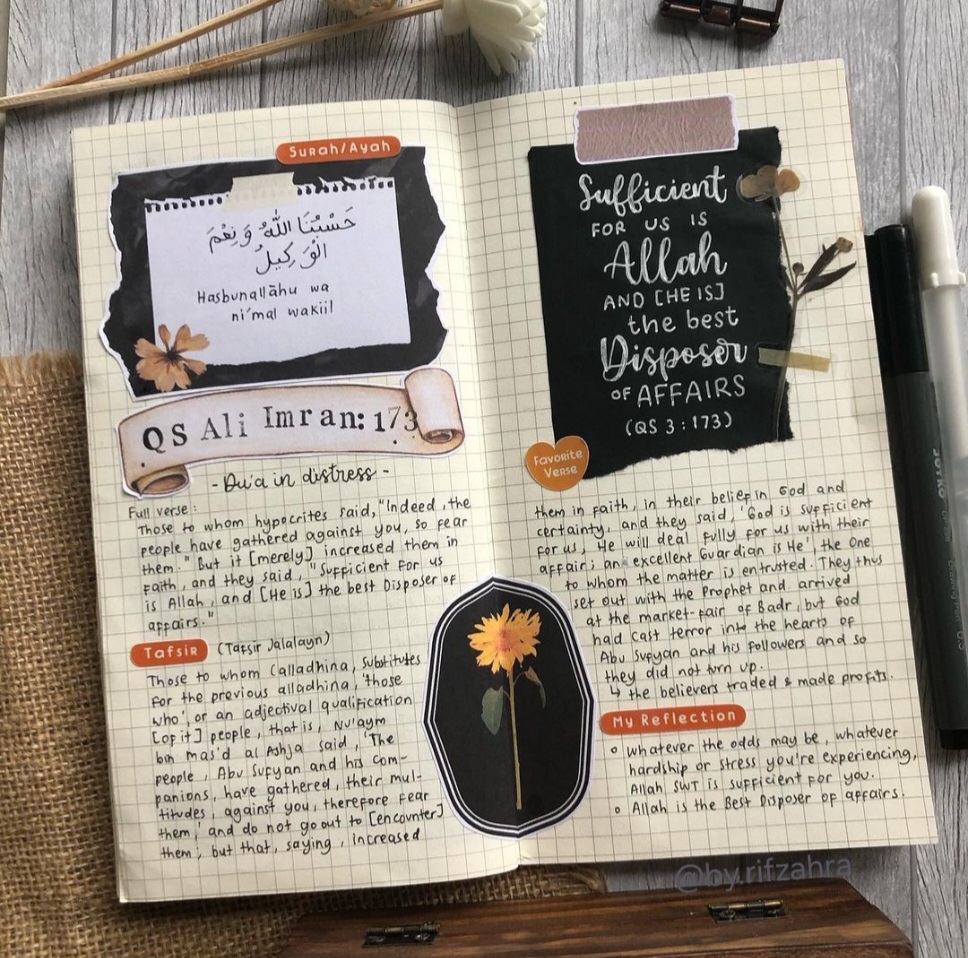
27) Day 27
Set Reflection Goals: Aim to reflect on a specific aspect of the Quran, such as mercy, justice, or patience, over a period of time.
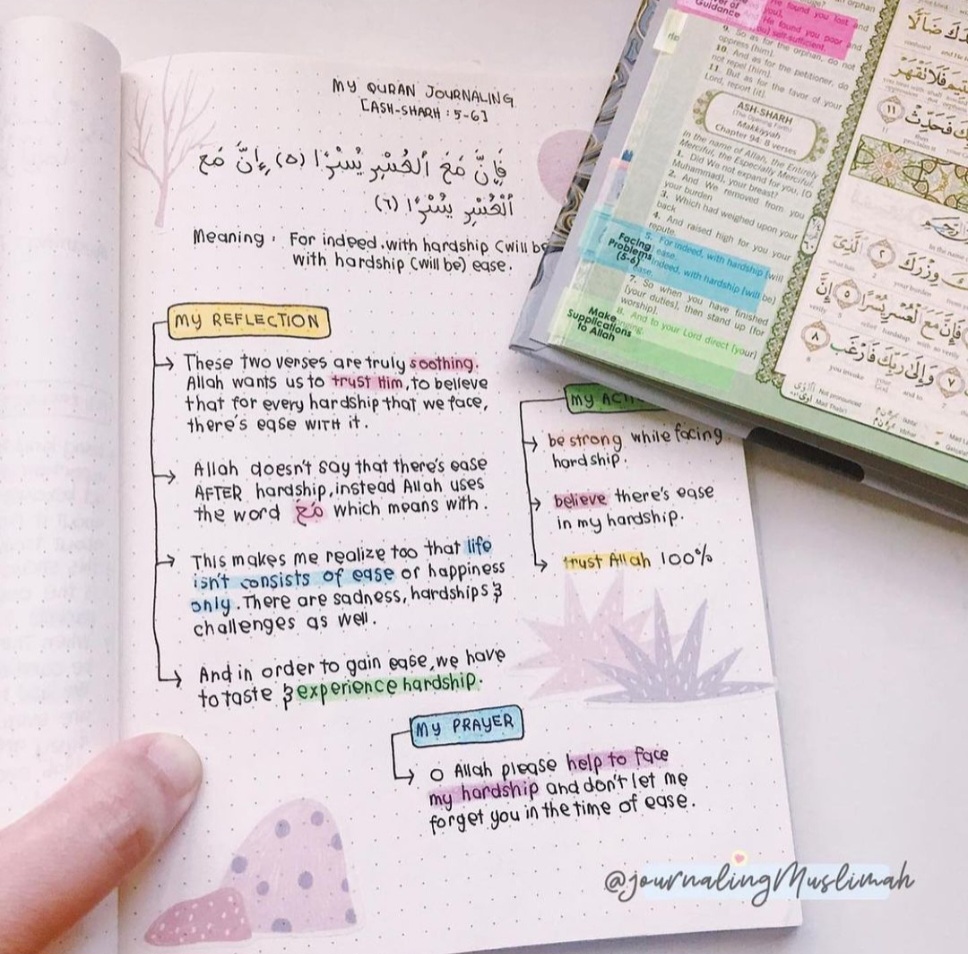
28) Day 28
Document Emotional Responses: Note your emotional reactions to the verses and explore why certain parts affect you deeply.
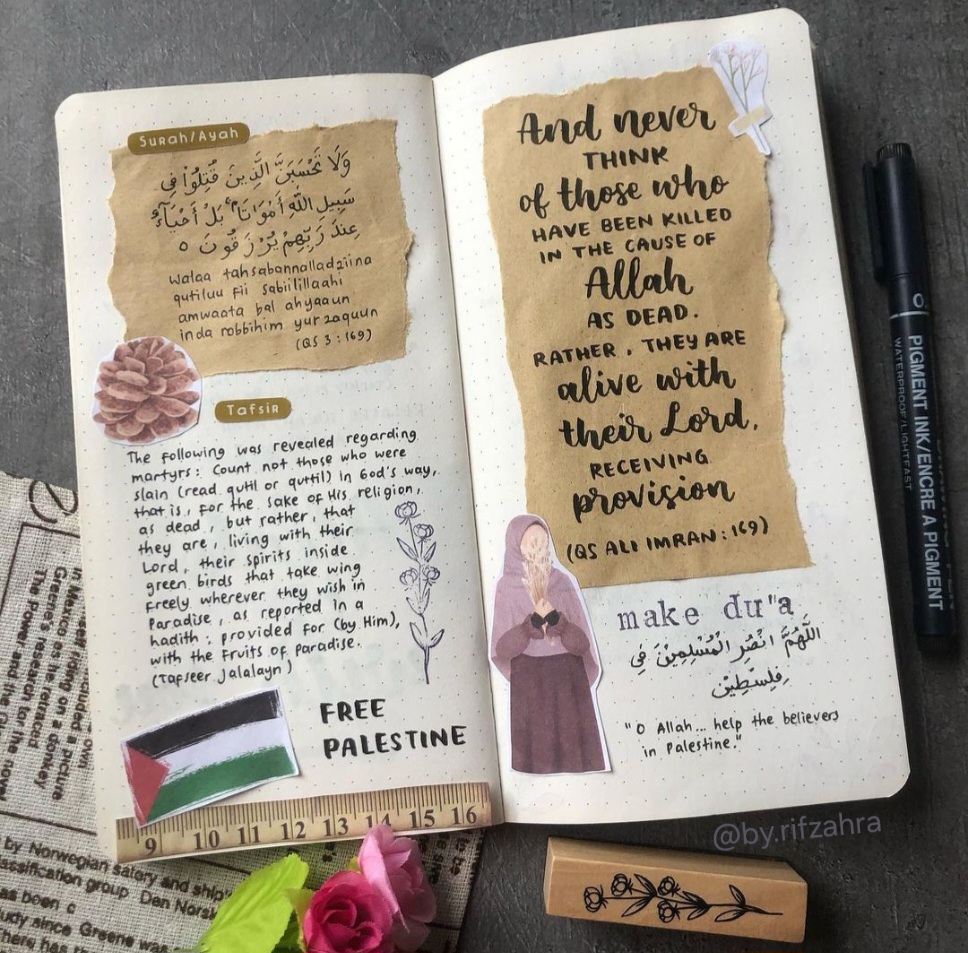
29) Day 29
Create a Reflection Ritual: Develop a ritual around your journaling, such as starting with a short meditation or recitation.
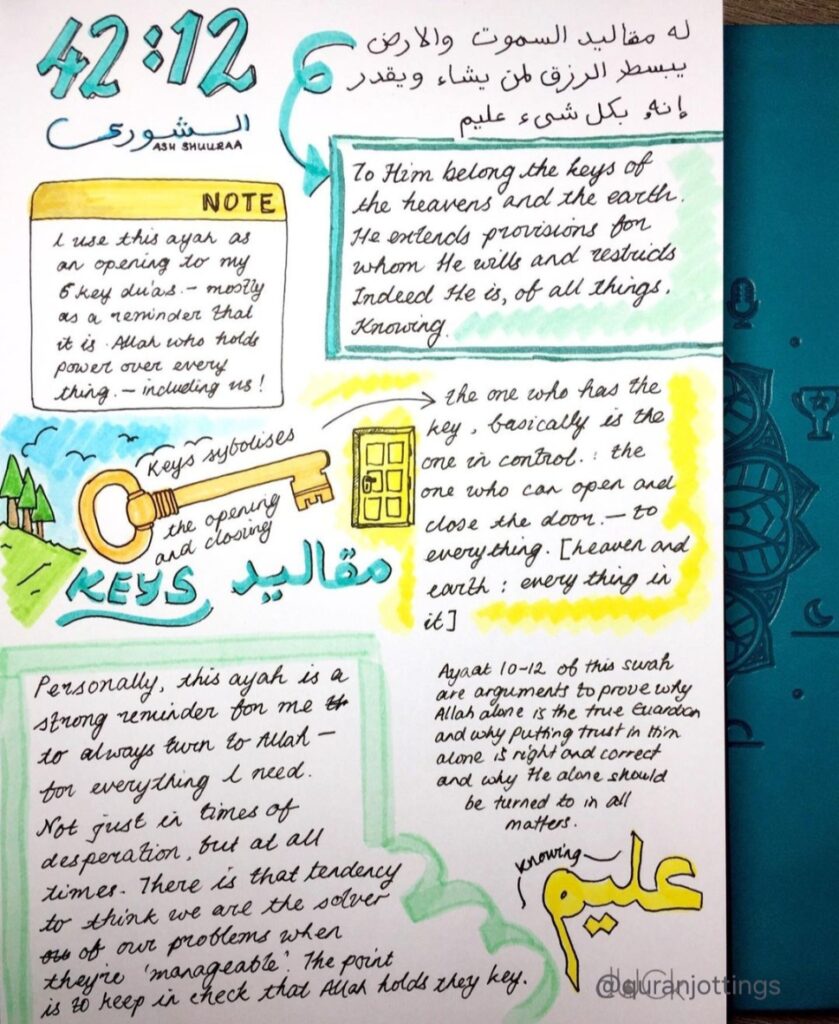
30) Day 30
Stay Patient and Consistent: Remember that deepening your understanding takes time. Be patient with yourself and remain consistent in your journaling practice.
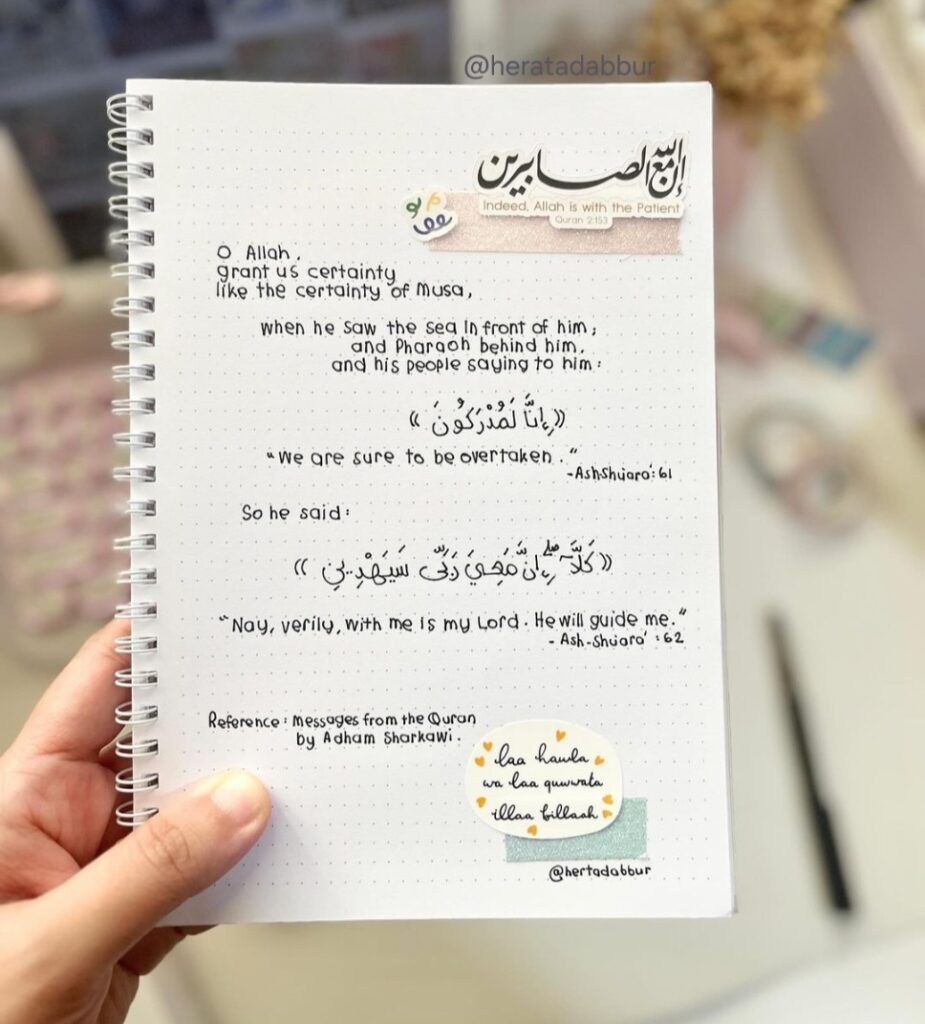
By incorporating these tips into your Quran journaling, you can create a more enriching and meaningful practice that enhances your spiritual growth and connection to the Quran in shaa Allah. May Allah accept your effort and keep the true spirit of Islam alive in the hearts. May Allah make it easy for everyone to hold on to their deen tightly. Aameen.
View this post on Instagram





